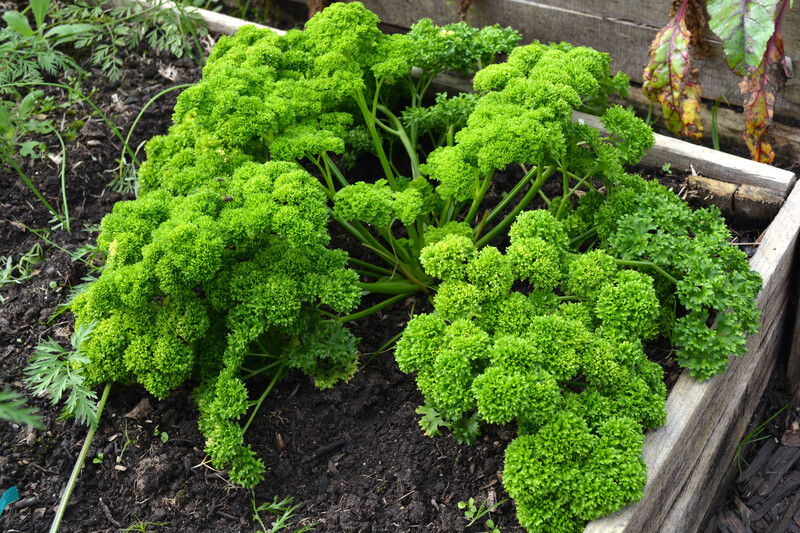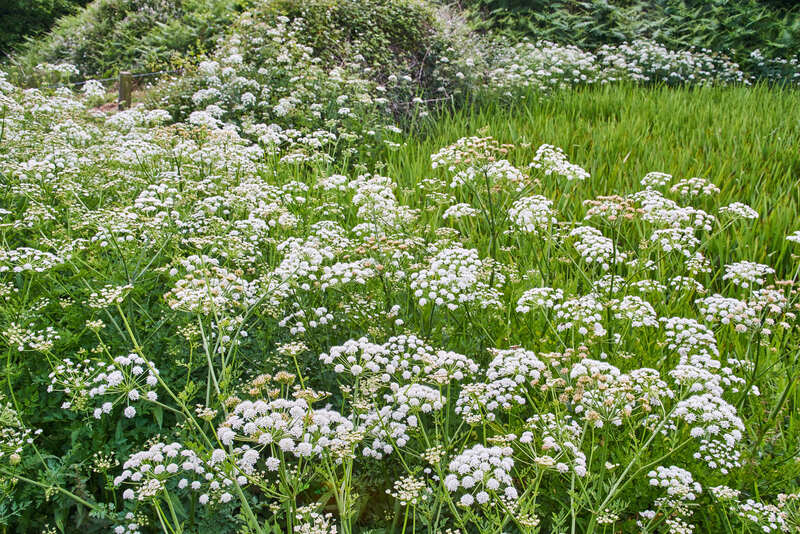Craft Your Peaceful Haven with Zen Garden Techniques
Posted on 02/06/2025
Craft Your Peaceful Haven with Zen Garden Techniques
In today's fast-paced, high-stress world, finding a tranquil sanctuary might feel impossible. Fortunately, the ancient art of Zen gardening offers a powerful antidote. By learning how to craft your peaceful haven with Zen garden techniques, you can transform any area--large or small--into a restorative, meditative oasis. This in-depth guide introduces the principles, design strategies, and actionable steps to build your very own Zen-inspired retreat.

Understanding the Philosophy Behind Zen Gardens
Contrary to popular belief, Zen gardens (also known as karesansui or Japanese rock gardens) are more than just decorative landscapes. They are thoughtfully designed environments that embody the principles of balance, simplicity, and mindful reflection. By delving into these age-old philosophies, you'll learn how to design a peaceful haven where body and mind can find repose.
The Origins of Zen Gardening
- Buddhist Influence: Zen gardens originated in Japanese Zen Buddhist temples as spaces for practicing meditation and contemplation.
- Simplification of Nature: The absence of vibrant colors and excessive foliage highlights the minimalist aesthetics and symbolic representations of nature.
- Spiritual Symbolism: Elements such as rocks, sand, and moss symbolize mountains, water, and islands, reflecting a cosmological harmony between humans and nature.
Benefits of Implementing Zen Garden Techniques
- Reduces Stress: Immersing yourself in a serene environment diminishes anxiety and promotes relaxation.
- Enhances Focus: The meditative process of maintaining a Zen garden encourages mindfulness and sharpens attention.
- Cultivates Creativity: Designing and tending to a Zen space stimulates innovative thinking and encourages personal expression.
Essential Zen Garden Principles to Guide Your Design
To successfully craft a tranquil oasis, it's crucial to adhere to certain key principles intrinsic to Zen landscape design. Here are the "golden rules" to remember as you envision your peaceful haven with Zen garden techniques:
-
Asymmetry (Fukinsei)
- Balance is achieved not through uniformity, but thoughtful irregularity. Arrange stones and plants in odd-numbered groupings to invoke a sense of natural order.
-
Simplicity (Kanso)
- Resist the urge to clutter your garden. Select only a few meaningful elements and allow each to breathe.
-
Naturalness (Shizen)
- Promote an organic flow. Avoid sharp lines, and let textures and shapes mimic nature as much as possible.
-
Tranquility (Seijaku)
- Strive for a sense of quietude that invites introspection and calm.
-
Subtlety (Yugen)
- Favor suggestion over explicit detail. Let areas of your Zen-inspired haven be open to interpretation and discovery.
Choosing the Perfect Location for Your Zen Sanctuary
Whether you have a sprawling backyard or a compact balcony, Zen garden techniques adapt to any space. Consider the following tips when choosing the spot for your peaceful haven:
- Privacy: Select a location shielded from noise and distractions.
- Natural Light: Ideally, your Zen corner should receive gentle sunlight and some shade for balance.
- Accessibility: Make sure you can reach your garden effortlessly, encouraging regular use and maintenance.
Step-by-Step Guide: How to Craft Your Peaceful Haven with Zen Garden Techniques
Follow these actionable steps to transform your chosen area into a Zen paradise that brings serenity into your daily life.
1. Plot the Layout
Begin by sketching your ideal layout. Keep it simple and pay attention to perspective--Zen gardens are often designed to be viewed from a particular angle. Decide how each area will serve to visually balance the whole.
2. Select Foundational Elements
- Rocks and Stones:
- These serve as the backbone of your Zen oasis, symbolizing islands, mountains, or animals.
- Choose rocks of differing shapes and sizes, grouping them in odd-numbered clusters to create a sense of natural randomness.
- Gravel and Sand:
- White gravel or sand is typically raked into wave-like patterns, representing water.
- Consider using fine gravel for detailed designs or coarser sand for a more rugged effect.
- Moss and Plants:
- Use sparing touches of moss, ferns, or low-growing shrubs to soften harsh edges and provide color contrast.
- Bamboo, dwarf pines, or Japanese maples work beautifully in larger Zen gardens.
3. Embrace Symbolic Features
Amplify the sense of tranquility by incorporating subtle, symbolic features:
- Water Features: If space allows, add a reflective pond or a simple basin (tsukubai), representing purity and renewal.
- Bridges or Stepping Stones: These represent life's path and transitions; use natural, unpolished materials for authenticity.
- Lanterns and Sculptures: Stone lanterns invite warmth, while simple statues evoke quiet wisdom.
4. Practice the Art of Raking
The ritual of raking gravel or sand is central to Zen gardening. Not only does this create mesmerizing patterns evoking ripples or waves, but it also turns garden maintenance into a meditative practice--each stroke a moment of focused serenity.
5. Add Personal Touches
To truly craft your peaceful haven with Zen garden techniques, infuse your space with personal meaning:
- Include smooth, hand-picked pebbles or driftwood from a memorable trip.
- Hang wind chimes or bells for gentle, calming soundscapes.
- Place a bench or meditation cushion for immersive contemplation.
Zen Garden Maintenance: Sustaining Your Tranquil Haven
Maintaining your peaceful retreat is an act of ongoing mindfulness. Follow these guidelines to keep your Zen garden looking immaculate and feeling harmonious:
-
Gentle Grooming:
- Rake gravel or sand regularly to preserve patterns and smooth rough patches.
- Trim moss, shrubs, and trees thoughtfully to maintain their shape while allowing for natural growth.
-
Seasonal Adjustments:
- Remove fallen leaves and debris to prevent clutter and foster clarity.
- Adjust plantings as needed to reflect seasonal changes--Zen gardens can be dynamic and evolving spaces.
-
Mindful Rituals:
- Set aside a few minutes daily or weekly for contemplation and tending to your garden; the process is as important as the result.
Bringing Zen Techniques Indoors: Mini Zen Gardens & Tabletop Retreats
No yard? No problem! You can craft a peaceful haven with Zen garden techniques in even the smallest apartment. Tabletop Zen gardens allow you to enjoy the benefits of tranquility and mindful design, even on your desktop or a bedside table.
- Choose a Shallow Tray: Opt for ceramic, wood, or glass that suits your decor style.
- Add Fine Sand or Gravel: Fill the tray with a thin layer for raking patterns.
- Include Miniature Rocks and Moss: Arrange small stones and preserved moss for visual interest and symbolism.
- Personalize: Incorporate tiny rakes, crystals, or calming tokens for a personalized touch.
Inspiring Zen Garden Ideas: Create Your Unique Haven
Looking for inspiration to craft your peaceful haven with Zen garden techniques? Explore these creative themes and approaches:
- Stone River Garden: Create a flowing "river" of gravel edged with larger boulders, simulating the tranquil effect of water in motion.
- Moss Carpet Sanctuary: Compose a living carpet of moss, dotted with stepping stones and accented with a rustic bamboo fountain.
- Bonsai Focus Garden: Center your Zen space around a carefully pruned bonsai, surrounded by snowy gravel and black pebbles.
- Minimalist Meditation Nook: Simply use a few large rocks, meticulously raked sand, and a meditation mat for a supremely peaceful vibe.

Common Mistakes to Avoid When Creating a Zen Garden
To ensure your peaceful sanctuary embodies true Zen principles, keep these common pitfalls in mind:
- Overcrowding: Avoid excessive planting or decorative items. Zen beauty comes from restraint.
- Ignoring Scale: Ensure rocks, plants, and features are appropriately sized in relation to your garden space.
- Neglecting Maintenance: Regular care is necessary not just for appearance, but for sustaining a calming effect.
- Lack of Flow: Paths and lines should direct the gaze through the garden in a harmonious, flowing manner.
Conclusion: Transforming Your Life with Zen Garden Techniques
Incorporating Zen garden techniques into your living space is more than a decorative choice--it's a way of inviting calm, clarity, and meaning into your daily existence. Whether sprawling or pint-sized, indoors or outdoors, your Zen haven will become a peaceful refuge for oneself and loved ones alike.
Start your journey today and discover the art of tranquility in your very own backyard (or desktop) with time-honored Zen gardening wisdom. Begin by selecting your favorite techniques, and watch your peaceful haven flourish into a sanctuary that soothes the soul.
Frequently Asked Questions (FAQs)
- What is the main purpose of a Zen garden?
Zen gardens are designed for meditation, contemplation, and fostering a tranquil state of mind through mindful interaction with nature. - What materials do I need to start my own Zen garden?
Essential materials include rocks, gravel or sand, minimal plants (like moss or ferns), a simple rake, and optional features like lanterns or a water basin. - Can I create a Zen-inspired space indoors?
Absolutely! Tabletop Zen gardens or small container gardens allow you to enjoy the calming effects of Zen principles inside your home. - How much maintenance does a Zen garden require?
Zen gardens are low-maintenance but benefit from regular raking of sand/gravel and periodic trimming of plants to preserve their minimalist beauty.
Embrace the quiet elegance of Zen gardening and craft your peaceful haven with these enduring techniques. Your journey toward serenity and mindfulness can begin today--one stone, one ripple, one tranquil moment at a time.
Latest Posts
Design a Simple Garden That Saves Time and Money
Sprouting Creativity: Designing Gardens for Young Minds
Crafting Living Works of Art with Hedge Trimming

